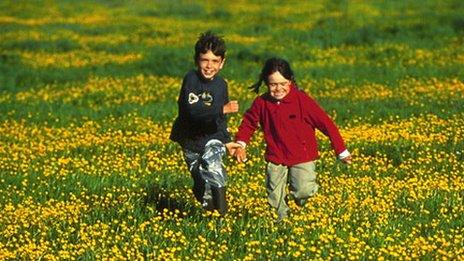National Trust asks public to record seaside sounds
- Published
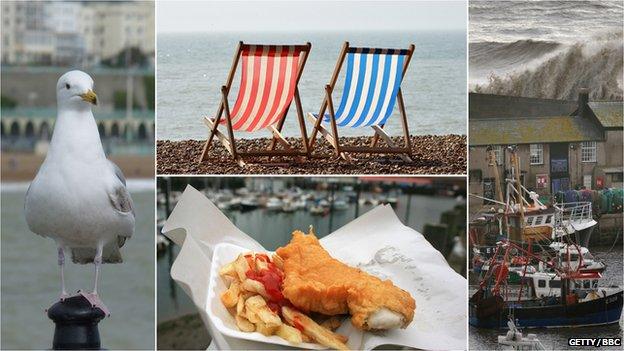
The National Trust is asking the public to record the sounds of the UK seaside to create an audio archive.
The trust wants thousands of recordings uploaded onto a digital map, external which will be curated by the British Library.
It said the sounds of the coastline were constantly changing and the project would create an audio snapshot for future generations to hear.
Cheryl Tipp, from the British Library, said recordings could include man-made sounds like those of a busy port.
The "Sounds of our shores" project is a joint scheme between the National Trust - which protects historic places and spaces in England, Wales and Northern Ireland - the National Trust for Scotland and the British Library.
Musician Martyn Ware, a founder member of bands The Human League and Heaven 17, will use sounds submitted by the public to create a piece of music for release in February 2016.
From gulls to ice cream vans: Public asked to collate a coastal sound-scape
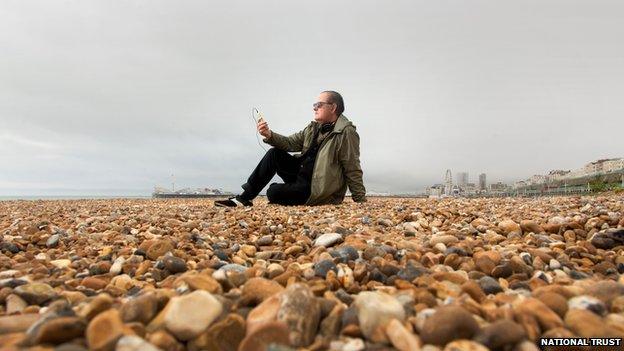
Martyn Ware will record a new track as part of the project
"I've had a deep connection with the coast all of my life," he said.
"As a kid growing up in Sheffield we'd go on family holidays to Scarborough or Skegness; I can still remember the sounds that filled our days at the seaside."

Five sounds heard only on a British beach

By Emma Atkinson, BBC News
The sound of waves lapping on the beach or the crunch of shingle underfoot are heard along coastlines the world over. But what are the things you can really only hear at the British seaside?
The distant twinkling tunes of an ice cream van followed by a chorus of excitable children begging for a 99, who inevitably end up in tears when it falls from the cone and splats on the floor.
The swoosh of a chip shop wrapper sweeping along the prom, which soon becomes rich pickings for a giant seagull snacking on those last few chips stuck to the paper.
The shrieks and gasps of daring paddlers as their bare feet enter the icy waters, soon realising it's nowhere near as warm as they think it's going to be - even on a really hot day.
The noise of a deck-chair being wrestled open, followed by numerous expletives from an angry beachgoer chasing their windbreaker.
Conversations about the unpredictable weather. Phrases you might hear include: "We're supposed to have a heatwave." "It's hotter than Spain", but more likely is: "Looks like it might rain."

Ms Tipp, curator of wildlife and environment sounds at the British Library, said sounds submitted could include "someone wrestling with putting up a deck-chair, the sounds of a fish and chip shop, or a busy port".
"We'd also love to hear from people that might have historic coastal sounds, which might be stored in a box in the loft," she said.

Coastal evolution
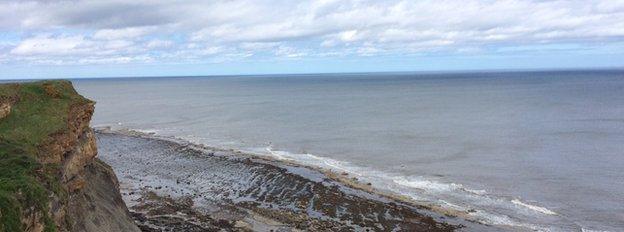
Jeremy Cooke, BBC UK affairs correspondent
On the cliffs above Whitby, the herring gulls are nesting as they have for centuries. Their cries are a seemingly timeless sound of the coast.
But, with coastal erosion and climate change, scenes like this may not remain the same forever. Natural habitats change, and the sounds of the shores change too.
That's why the National Trust wants us all to become collectors of today's seaside sounds before they are lost.
And it's not just the natural environment that evolves.
Just along the coast, the old Whitby foghorn station stands as a silent reminder of how man-made sounds can pass into history.
On the roof of the white building are the giant twin horns of the "Hawsker Bull", as the foghorn was known. It was part of the soundtrack of life here for generations, but has not been heard since the late 1980s.

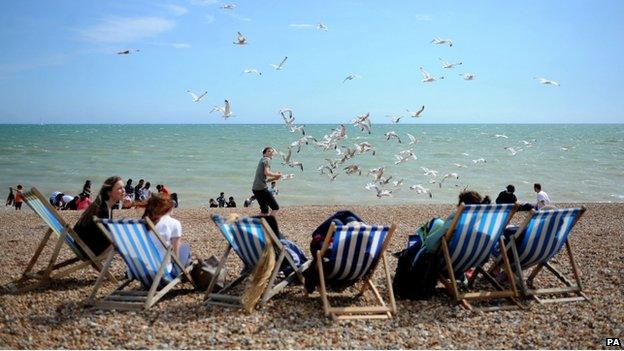
Kate Martin, of the National Trust, said the recordings would be valuable to future generations and would "bring back memories" in years to come.
Recordings can be uploaded along with pictures and text via the Audioboom website, external until 21 September.
After that, all the sounds recorded around the UK's 10,800 miles of coastline will be added to the British Library's Sound Archive, joining 6.5 million recordings dating back to the 19th Century.
- Published23 March 2015
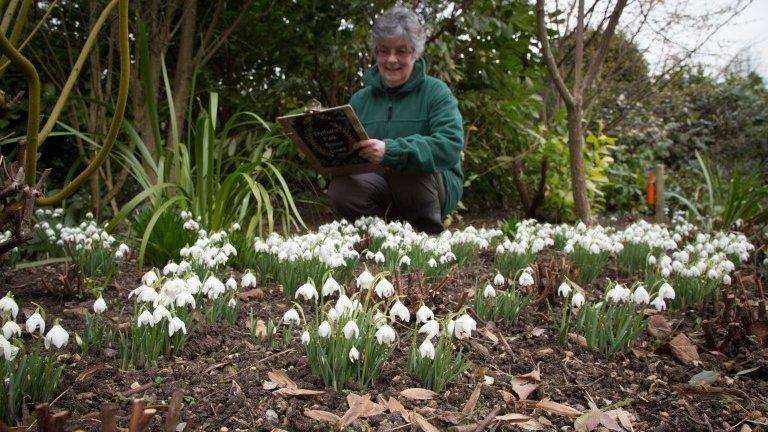
- Published23 August 2013
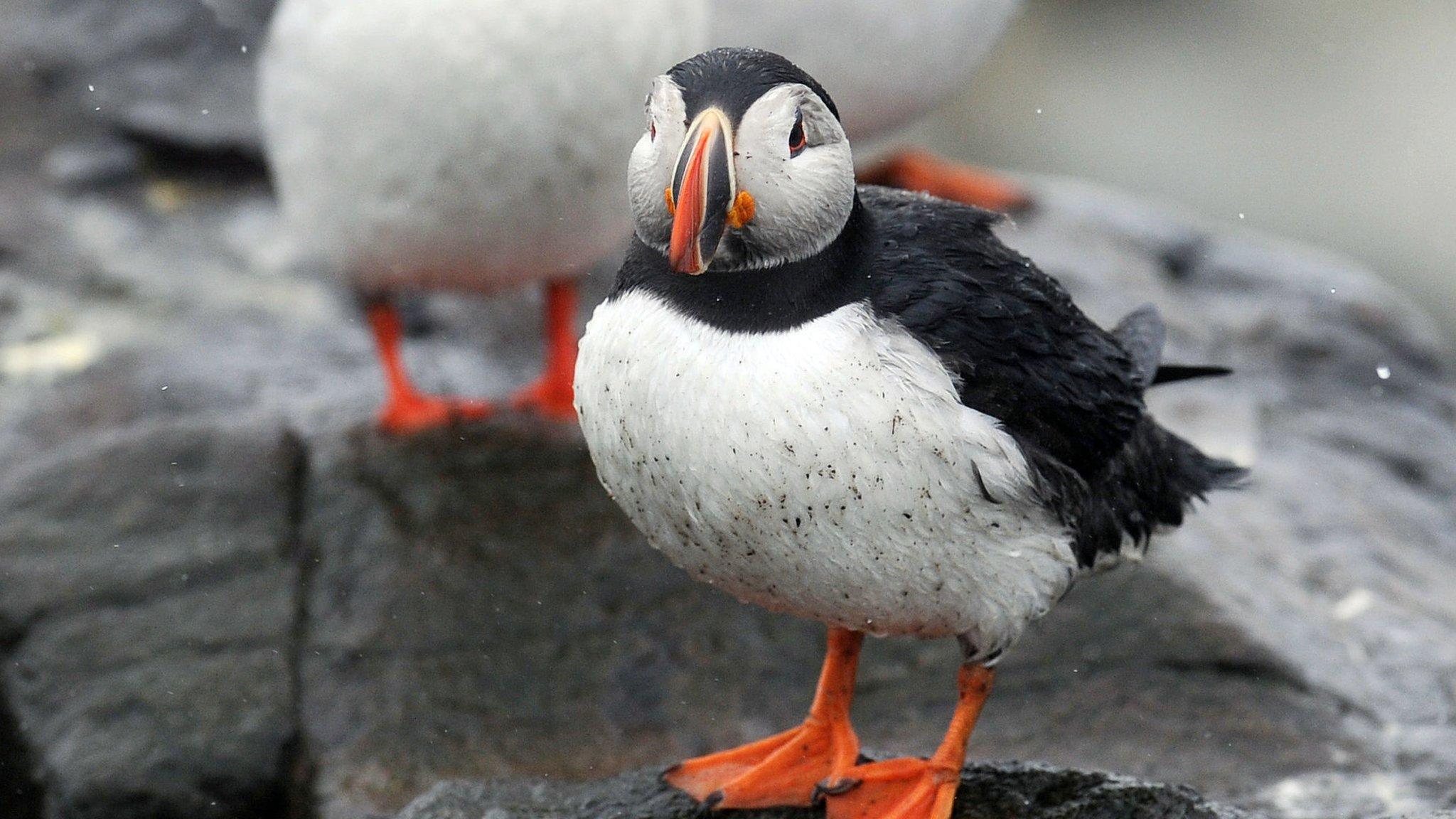
- Published18 April 2013
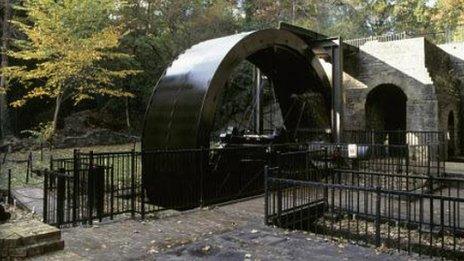
- Published30 March 2012
